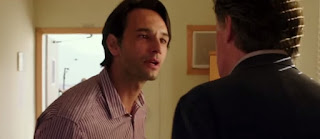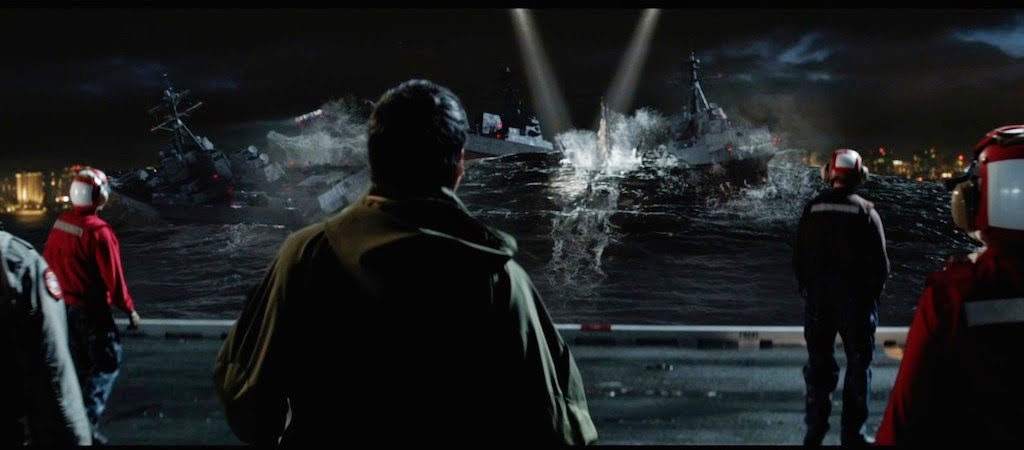“Thirty three men trapped underground, and we don’t even
know if they’re alive?” ~ Sebastian Pinera
“It’s not a question of if
it falls, but when.” ~ Andre
Sougarret
“I’m not leaving without him.” ~ Maria Segova
“That’s not a rock. That’s the heart of the mountain. She
finally broke.” ~ Mario Sepulveda
In 2010, the world was transfixed to a two month long story
coming out of the high deserts of Chile, where thirty three miners, trapped
deep beneath the earth after a collapse, were discovered alive. Massive efforts
were undertaken to rescue them, and the story had an uplifting ending,
broadcast to the eyes of the planet. The startling tale, something we just
couldn’t believe if it didn’t really happen, is now in theatres with an
international cast in the new film The
33, by Mexican director Patricia Riggen.
We’re introduced to the various workers in the San Jose
mine, a copper and gold mine in the Atacama desert, an inhospitable place. The
owner of the mine has not been taking seriously the concerns that the mountain
is becoming increasingly unstable. The men working the mine do this despite the
danger. And of course the worst happens- the collapse occurs, and it is
catastrophic. All of the workers survive, but they find themselves well and
truly trapped, their communication with the outside world cut off, and their
supplies low. Above, the company drags its heels, the families maintain a vigil
and press for something to be done, and the government intervenes in what
becomes a rescue effort.
Watching this film, I remembered the story as it had
unfolded on the news. From the stunning revelation that the miners were all
alive to the final extractions of each and every one of them, it was a story
that spoke to the strength of the human will and the tenacity of human
resourcefulness. So of course it was inevitable that someone would end up
making a movie about it. The challenge in this case is to make a movie,
maintaining suspense, when everyone knows how it all ended.
Patricia Riggen and the writers Mikko Alanne, Craig Borten,
and Jose Rivera worked with the miners and their families, crafting a film that
tells the story both above and below, focusing on several key figures in the
event. With thirty three men below and many people above, there’s really only
time to focus on some of them, so some characters are more fleshed out than
others. Filming was done in South America, including near the actual site. It
has the feel of a disaster movie early on, working into more of a suspenseful
film after the cataclysm as those above and below find themselves dealing with
the situation at hand. Certainly Riggen handles the technical aspects of the
collapse very well- it feels harrowing when it happens, and she captures the
claustrophobic feeling of this space throughout the film, as well as the
tension.
The cast were well chosen, coming from a multitude of
countries. Bob Gunton, who’s been in countless character roles on television
and film, appears as the president of Chile, Sebastian Pinera. His minister for
mining, Laurence Golborne, is played by the actor Rodrigo Santoro. The
character is most directly responsible for overseeing the rescue efforts, while
letting the people doing the actual job get their job done. This is the first
time I’ve seen him in anything that I liked- he previously played the villain
in the 300 movies, as well as a
retconned-in character in the television series Lost, characters I found irritating, but that was less because of
the actor and more because of the writing. The two characters find themselves dealing
with a situation that is both crisis- particularly in terms of initial
response- and then opportunity.
The Irish actor Gabriel Byrne turns up in a role with a good
deal to do, as the engineer Andre Sougarret, the man overseeing the rescue
efforts. Byrne gives the character the sense of competence and professionalism
you’d expect, both out of the actor and out of a man in that profession. He’s
facing a serious challenge here, and as daunting as it is, he lives up to it.
Juliette Binoche turns up in the film as Maria Segova, whose brother Dario
(Juan Pablo Raba) is among those in the mine, and with whom she has some
unfinished business to resolve. Maria becomes a strong voice among the families
of the miners, determined to see them brought back safely. Binoche plays to
that- she’s the sort of actress who could make reading the phone book
fascinating.
There is a problem of course in filming miners in dark
places- how does one tell one character from the other if they’re all grubby,
in helmets or masks? Some of the miners get more exposure than others. Raba’s
role as Dario provides for some of the family drama- the rift between he and
his sister provides some of the tension as well as the regret. Jacob Vargas
provides some levity as Edison “Elvis” Pena, so nicknamed because of his
fondness for Elvis music. Mario Casas is Alex Vega, a miner with medical issues
of his own trapped in a place he’d rather not be in.
The two actors who really get the most exposure among the
miners, and who give the strongest performances of the film, are Lou Diamond
Phillips and Antonio Banderas. Phillips plays the shift foreman Luis Urzua. The
character already has reservations about the state of the mine early on, and
there’s something of a pessimistic streak in the man that plays out in the
film. And yet there’s a strong sense of the man as capable and organized,
things that Phillips plays to in his performance.
Banderas plays Mario Sepulveda, a man who became a public
face for the miners, and a strong leader among them, particularly early on
while no one knows they’re actually alive. He’s a voice of reason for the
others, handling a crisis in just the right way, defusing tensions and despair,
and keeping things in order. As much stress as he must feel, Sepulveda succeeds
in keeping the others from panic, and these elements that Banderas plays to
bring out the best in the actor.
The film does trivialize certain elements- the early
political missteps, some stories being set aside in favour of others, the fact
that the miners have not been properly compensated, some Hollywood fudging of
facts, for instance. It is a big story, something that has to be condensed into
a couple of hours, but The 33 does
hold our attention, keeping its audience on edge and tense. Yes, we know how it
all ends, but watching it unfold is compelling, and ultimately inspiring.




















